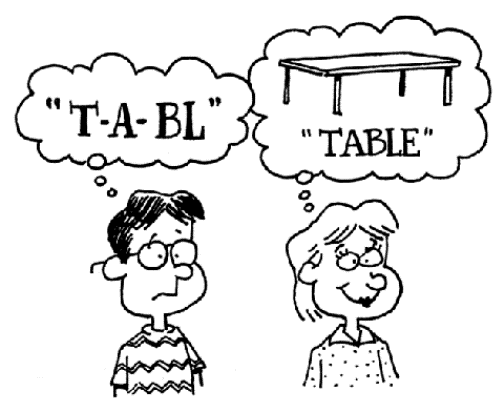A common request I get from parents and educators in China is to make English writing easier to read aloud. When non-native speakers look at English words, they wish there was an easier way to just pronounce what they see. “knife” and “knight” are just ridiculous to explain to new learners… and so are words like “chess” and “chef”… Indeed, native speakers wish it was simpler too.

Phonetics for Chinese
Unfortunately, there is no rhyme or reason for most spellings in English and root connections between words are not easy to notice either, unless you are a linguist or fluent in Latin. Alas, conventional spelling is here to stay… Although The English Spelling Society (or TESS) certainly hopes there will be a change someday.
For those living in the native-English speaking world, like the US, UK, Canada, Australia, etc. a recalibration of written English is almost certainly not going to happen. This inefficient English spelling system is here for good… (although it feels more like evil to students). But for all of you TESS supporters, there might be a glimmer of hope out there. After all, Traditional Chinese characters were switched out for a Simplified writing system in the 1950s in an attempt to improve literacy in Mainland China.[*] Of course, establishing a new country under a one-party government certainly helped the cause, so don’t hold your breath. The US couldn’t get enough domestic support for the metric system[*], so a phonetics-based writing system for English will be a long time coming…
Why English is so much like Chinese

Chinese pronunciation
As an intermediate Chinese user, I’ll look at a character like 土 and think, “how do you pronounce that without phonetics? Luckily, we have pinyin to help us pronounce “tu”, but what about another character, like 地 ? There is a 土 radical on the left… so maybe it’s pronounced like “tu” too? But, sadly it’s not. Actually, 地 is “di” and sounds nothing like 土. (In meaning, 土 means earth and 地 means land. At least there’s some connection!)
Now, you might be thinking “… if you sound out English words they could be said without relying on phonetics.” And that seems true to a native speaker because of our Curse of Knowledge (when you can’t remember what it was like not to know something) In fact, in Chinese I could read another character 吐 which includes 土 and it is actually pronounced “tu”! So, the pronunciation of Chinese characters is just as chaotic as English; sometimes it follows a pattern – sometimes not.
Just like in English, two words that seem alike are not always pronounced the same. There are no set rules, just “habits” I guess we should call them. If you just learned how to pronounce the “c” in cup, and then you saw the word “face”, how would you pronounce it? Words are not always pronounced how you might think and this causes many non-native students to break down and curse this ridiculous writing system.
When you study anything new, you want to find patterns. If you build patterns which constantly break under new examples, you’ll be left with bitterness and resentment. English is so hard to speak properly because the pronunciation of words rarely hold true 100% of the time. English grammar is also full of exceptions and there are differences in habits among various native-English speaking countries. (US: on the weekend UK: at the weekend)
If you’re still reading, thanks for sticking with me! If English phonetics is your thing, please take a look at the site called S4phonetics.org, which is the place to learn about a phonetic system I use in EFL classrooms around China to help demystify the pronunciation of the English language. Textbooks and speaking-test prep books will also be available through S4phonetics. So, remember to subscribe to our S4 newsletter for reminders!


 Custom Search
Custom Search